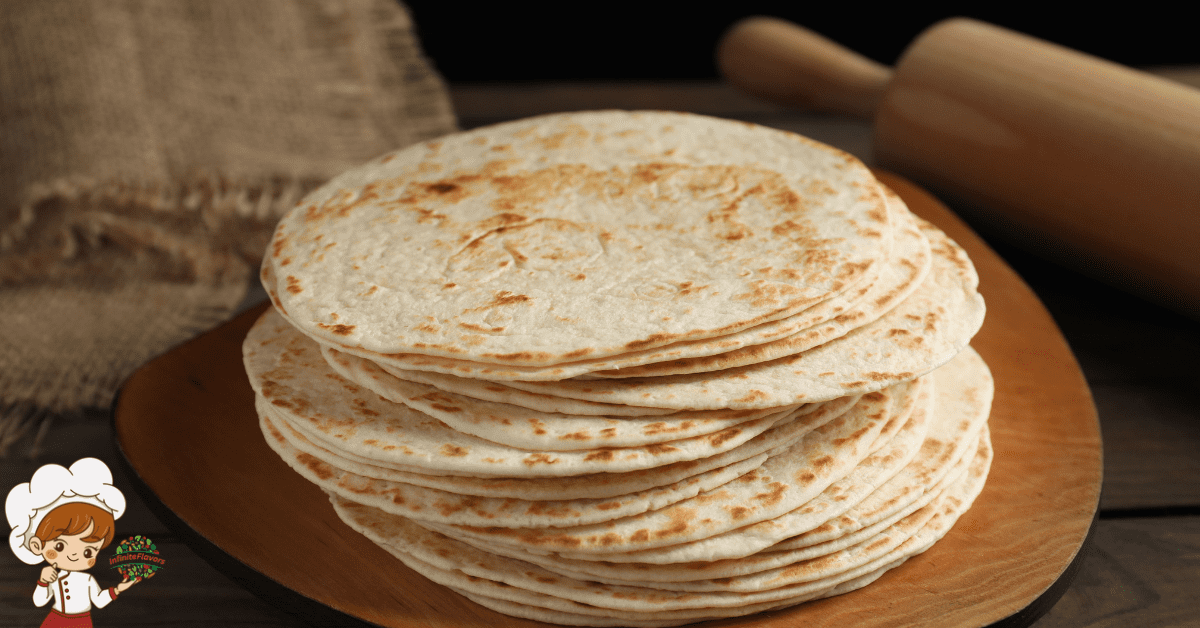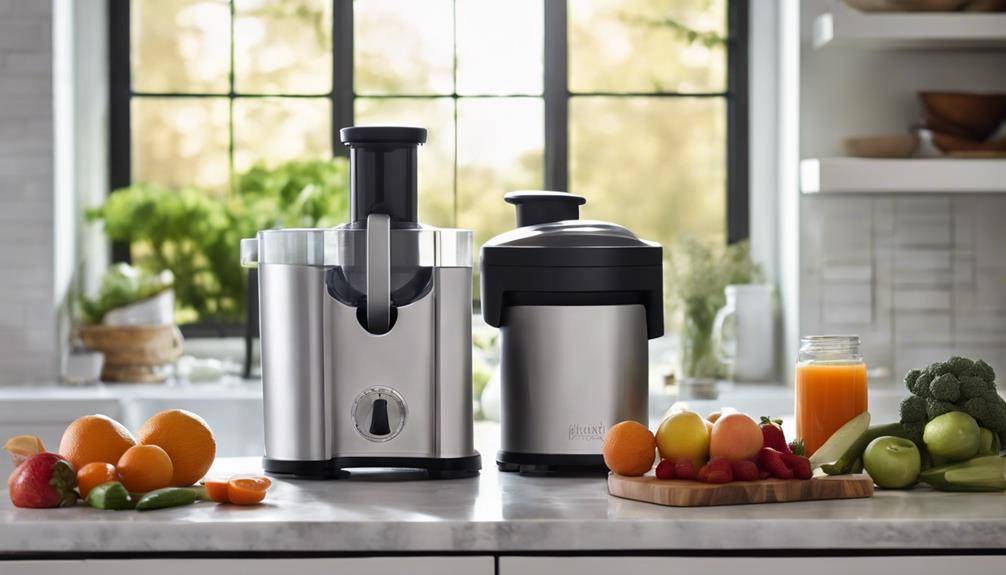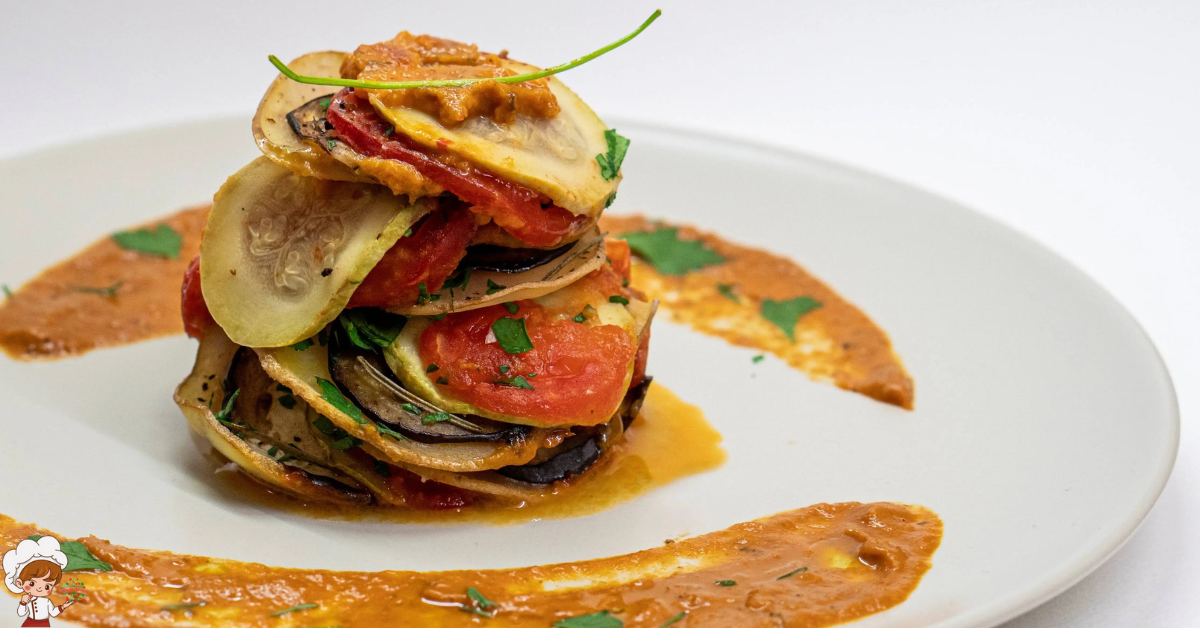Amazing Rolling Pins For Homemade Tortillas

Amazing Rolling Pins For Homemade Tortillas; When you’re making homemade tortillas, choosing the right rolling pin is essential for achieving that perfect thickness. Traditional wooden pins provide durability and excellent control, while modern silicone and marble options offer flexibility and easy cleaning. Adjustable rolling pins let you control dough thickness for uniform results. Remember to use a gentle touch and roll from the center outwards to shape them evenly. Avoid common mistakes like uneven thickness and not letting the dough rest. Each type of rolling pin has unique advantages that can enhance your tortilla-making experience; you’ll find plenty of tips to perfect your technique.
Importance of a Good Rolling Pin
When it comes to making homemade tortillas, you can’t overlook the significance of a good rolling pin. A quality rolling pin not only aids in achieving the perfect thickness but also enhances your overall tortilla-making experience. Understanding rolling pin history can help you appreciate the evolution of this essential kitchen tool. From ancient wooden cylinders to modern silicone options, each design serves a unique purpose.
Using the right rolling pin techniques is vital for rolling out your dough evenly. You want to apply even pressure to guarantee all tortillas cook uniformly. If you’re using a traditional wooden pin, hold it with both hands and let the weight of the pin do the work. For a more modern option, like a marble rolling pin, you’ll benefit from its cool surface, which can help keep your dough from sticking.
Don’t forget to dust your work surface and rolling pin lightly with flour to prevent sticking. This simple step can save you from a frustrating experience. Also, consider rolling your dough into a ball before you start; it helps create a more uniform shape as you roll.
Ultimately, investing in a reliable rolling pin and mastering rolling pin techniques can make all the difference. The right tool, when used correctly, leads to delicious homemade tortillas that are sure to impress your family and friends. So, next time you’re in the kitchen, remember that a good rolling pin is key to tortilla success.
Types of Rolling Pins
When choosing a rolling pin, you’ll notice a variety of materials, sizes, and shapes available to suit your needs. You can opt for traditional wooden models or modern silicone versions, each offering unique benefits. Understanding these options will help you select the perfect rolling pin for your homemade tortillas.
Materials for Rolling Pins
Choosing the right material for your rolling pin can make a big difference in your tortilla-making experience. You’ll find several material types available, each offering unique benefits.
Wood is a classic choice for rolling pins. It provides excellent grip and control, allowing you to roll out your dough evenly. Plus, wooden pins tend to be quite durable, lasting for years with proper care. However, they can absorb moisture, so make sure to keep them dry after use.
Marble rolling pins are another popular option. They’re heavier and allow for smooth rolling, which is great for thin tortillas. Marble also has a cool surface that helps keep the dough from sticking, but it can be more fragile than wood, so handle it with care.
For those who prefer something lightweight, silicone rolling pins are perfect. They’re flexible, easy to clean, and won’t absorb odors. However, they might not provide the same level of control as wooden or marble pins.
Ultimately, the right choice will depend on your preferences, but considering material types and rolling pin durability will help you make the best decision for your tortilla-making needs.
Size and Shape Options
There are various sizes and shapes of rolling pins that can greatly impact your tortilla-making process. When choosing a rolling pin, consider the rolling pin dimensions that best suit your needs. For instance, a standard French rolling pin, typically around 20 inches long, offers balance and control, making it ideal for achieving consistent tortilla thickness variations.
Alternatively, you might prefer a thicker, tapered pin, which can help you apply even pressure while rolling out dough, ensuring uniform results. The diameter of the pin also matters; wider pins allow you to roll out larger tortillas, while narrower options can be better for smaller batches.
If you’re making tortillas that need to be particularly thin, a smaller, lightweight pin can give you the precision needed for delicate dough. Additionally, consider whether you want a traditional or more modern design, as this can influence comfort during use. Ultimately, the right size and shape will help you master the art of tortilla-making while allowing for the perfect thickness every time. So, take your time to explore the options and find the rolling pin that works best for you.
Traditional Vs. Modern Designs
A variety of rolling pin designs can greatly enhance your tortilla-making experience, with options ranging from traditional to modern styles. Traditional rolling pins, often made of wood, have deep cultural significance in many communities. They’re not just tools; they connect you to generations of cooks who’ve shared recipes and techniques. The simple, cylindrical design has evolved from basic hand-carved pieces to beautifully crafted heirlooms, each telling a story of its own.
On the other hand, modern rolling pins come in diverse materials, including marble, silicone, and even stainless steel. These designs focus on functionality, often featuring non-stick surfaces or adjustable thickness rings, making your tortilla-making process quicker and easier. While they lack the nostalgic charm of traditional pins, their efficiency can’t be denied.
Ultimately, choosing between traditional and modern rolling pins is a matter of personal preference. If you value cultural significance and enjoy the tactile experience of cooking, a traditional rolling pin might resonate with you. However, if convenience and ease are essential, modern designs can certainly enhance your kitchen experience. Embrace the design evolution to find the perfect rolling pin for your homemade tortillas!
Wooden Rolling Pins
When you think about rolling pins, wooden options often come to mind for their durability and ease of use. They offer great benefits, like even pressure on your dough, which helps create the perfect tortilla. Plus, with a bit of care and maintenance, your wooden rolling pin can last for years in your kitchen.
Benefits of Wooden Pins
Using a wooden rolling pin offers several advantages that enhance your homemade tortilla experience. First off, wooden durability is a standout feature. Unlike plastic or metal options, wooden pins can withstand the pressure you apply while rolling out dough, ensuring they won’t warp or crack over time. This longevity means you can rely on your wooden rolling pin for countless tortilla-making sessions.
Another benefit lies in the wooden aesthetics. The natural look and feel of wood add a rustic charm to your kitchen, making it not just a tool, but a beautiful piece of kitchenware. When you’re rolling out your dough, the warmth of the wood is comforting, and it creates a connection to traditional cooking methods.
Moreover, wooden rolling pins provide excellent traction against the dough, preventing it from sticking. This characteristic results in smoother rolling, allowing you to achieve the perfect thickness for your tortillas. You’ll appreciate how easily the dough glides under the pin, making your tortilla prep more enjoyable. With these advantages, a wooden rolling pin is a solid choice for anyone passionate about crafting delicious homemade tortillas.
Care and Maintenance Tips
Caring for your wooden rolling pin is vital to guarantee its longevity and performance in the kitchen. Start by using proper cleaning techniques after each use. Simply wipe it down with a damp cloth and mild soap, avoiding soaking it in water. This prevents warping or cracking. For tough residue, a gentle scrub with a soft brush can help, but steer clear of harsh chemicals or abrasive sponges which can damage the wood.
Once cleaned, dry your rolling pin thoroughly with a soft towel. To maintain its finish, apply a food-safe mineral oil every few months. This keeps the wood hydrated and prevents it from drying out or cracking.
Storage is also important for preserving your rolling pin. Avoid placing it in direct sunlight or near heat sources, as these can lead to warping. Instead, store it in a cool, dry place, ideally in a drawer or a dedicated storage bag. Keeping it well-protected not only helps maintain its appearance but also guarantees your rolling pin will be ready to roll out those delicious homemade tortillas for years to come!
Marble Rolling Pins
Marble rolling pins stand out as a stylish and effective tool for crafting homemade tortillas. Their striking marble aesthetics not only add elegance to your kitchen but also make them a conversation starter when you have guests. The smooth surface of a marble rolling pin is perfect for quickly and evenly rolling out dough, guaranteeing your tortillas come out thin and uniform every time.
One of the biggest advantages of using a marble rolling pin is its durability. Marble durability guarantees that your rolling pin will withstand the test of time, making it a worthwhile investment for any home cook. Unlike wooden or plastic alternatives, marble doesn’t warp or crack easily, which means you can rely on it for countless tortilla-making sessions.
When you use a marble rolling pin, you’ll also appreciate how it retains cool temperatures. This is particularly beneficial when working with dough that might become sticky or too warm with the heat of your hands. The cool surface helps keep your dough manageable, allowing you to roll it out smoothly without sticking.
Moreover, cleaning a marble rolling pin is a breeze. Just a quick wash with soap and water will keep it looking pristine, and its non-porous surface prevents any absorption of odors or flavors. Overall, if you want a tool that combines functionality with visual appeal, a marble rolling pin is definitely worth considering for your tortilla-making adventures.
Silicone Rolling Pins
When it comes to making tortillas, silicone rolling pins offer some great benefits, like being non-stick and easy to clean. You’ll also find that they’re lightweight, making them a breeze to handle. Plus, with a few simple care tips, you can keep your silicone rolling pin in top shape for all your tortilla-making needs.
Benefits of Silicone Rolling Pins
Silicone rolling pins have become a favorite among home cooks for several reasons. First and foremost, their silicone durability means they won’t crack or chip like traditional wood or plastic options. This longevity allows you to roll out tortillas without worrying about damaging your tool over time.
Another significant benefit is their impressive heat resistance. Silicone can withstand higher temperatures without warping, making it perfect for various baking tasks. You won’t have to stress about the rolling pin melting if it accidentally comes into contact with warm dough.
Silicone rolling pins are also non-stick, which means you can easily roll out your tortillas without them sticking to the surface. This feature saves you time and effort, allowing you to focus on creating the perfect tortilla. Additionally, they’re lightweight, making them easy to handle, especially when you’re rolling out larger batches.
With their flexibility and ease of cleaning, silicone rolling pins eliminate some of the common frustrations that come with making homemade tortillas. So, if you want a reliable, versatile tool in your kitchen, a silicone rolling pin is definitely worth considering!
Care and Maintenance Tips
Taking care of your silicone rolling pin is essential for ensuring its longevity and performance. Start with proper cleaning techniques. After each use, wash your rolling pin with warm, soapy water and a soft sponge; avoid abrasive cleaners that could damage the surface. If you encounter stubborn dough residue, sprinkle some flour on the pin and wipe it clean with a damp cloth.
When it comes to storage solutions, keep your silicone rolling pin in a cool, dry place to prevent warping. You can store it flat in a drawer or hang it up if you have space. Avoid stacking heavy items on it, as this might cause deformation. If your rolling pin has a removable cover, consider washing it separately for thorough cleaning.
To maintain its non-stick properties, lightly dust your rolling pin with flour before each use, especially if you’re working with sticky dough. With these care and maintenance tips, your silicone rolling pin will be ready to help you create perfect tortillas for years to come. Keep it clean and stored properly, and you’ll enjoy the benefits of this versatile kitchen tool!
Adjustable Rolling Pins
An adjustable rolling pin can be a game changer for making homemade tortillas. With its adjustable features, you can easily control the thickness of your dough, ensuring that each tortilla rolls out perfectly every time. You won’t have to guess or worry about uneven thickness, which can lead to inconsistent cooking results.
Many adjustable rolling pins come with removable rings or marked settings that allow you to achieve precise measurements. This rolling precision is especially useful when you’re trying to impress family or friends with your tortilla-making skills. You can effortlessly switch between different thicknesses, whether you’re aiming for a thicker tortilla for enchiladas or a thinner one for tacos.
Using an adjustable rolling pin also saves time. Instead of rolling out each tortilla by hand and checking for evenness, you can set your desired thickness and roll away. This way, you can focus on other aspects of your meal prep, like making your favorite salsa or guacamole.
When choosing an adjustable rolling pin, consider the material, as some options provide a smoother surface than others. A wooden pin may add a rustic touch, while a silicone option might offer better non-stick properties. Regardless of your choice, having an adjustable rolling pin will elevate your tortilla-making game.
Traditional Vs. Modern Rolling Pins
How do traditional rolling pins stack up against modern ones when it comes to making tortillas? When you think about it, the choice between these two types can influence not just your technique but also the cultural experience of making tortillas. Traditional rolling pins, often made from wood, have a rich history and cultural significance. They connect you to generations who used similar tools to prepare food, embodying the rolling techniques passed down through families.
Using a traditional rolling pin, you might find that it allows for greater control over the dough, enabling you to achieve that perfect thickness. The weight and texture of wood give you a tactile experience, making it easier to feel the dough’s elasticity as you roll. Plus, the craftsmanship of these pins often adds a unique character to your kitchen.
On the other hand, modern rolling pins may come in various materials, like silicone or stainless steel, which offer their own advantages. They’re often easier to clean and can be more versatile, but they may lack that same connection to tradition. Some modern pins even feature non-stick surfaces, making it simpler to roll out dough without sticking.
Ultimately, your choice might come down to what you value more: the cultural significance and traditional rolling techniques of a wooden pin or the convenience and innovation of modern designs. Both have their merits, so consider what resonates with you as you roll out your next batch of tortillas.
Choosing the Right Size
Choosing the right size rolling pin can greatly affect your tortilla-making experience. When you’re making homemade tortillas, the size of your rolling pin plays a significant role in achieving the desired tortilla thickness. If you opt for a shorter, smaller pin, you might find it more challenging to roll out larger dough balls evenly. On the other hand, a longer rolling pin can give you the leverage needed to create uniformly thin tortillas without much effort.
Consider the size of your workspace as well. If you have a spacious kitchen counter, a longer pin allows for more rolling techniques that can help you achieve that perfect shape. However, if your kitchen is on the smaller side, a medium-sized rolling pin might be more manageable and convenient. It’s important to balance your rolling pin’s size with your personal comfort and the amount of dough you’re working with.
Another factor to keep in mind is the weight of the rolling pin. Heavier pins tend to require less pressure, making it easier to achieve the desired tortilla thickness, while lighter pins may demand more effort from you. Ultimately, the right size rolling pin should feel comfortable in your hands and suit your rolling techniques. By choosing wisely, you’ll find that making tortillas becomes a more enjoyable and efficient process, leading to delicious results every time.
Techniques for Rolling Tortillas
Mastering the right techniques for rolling tortillas can considerably elevate your homemade creations. The key is to develop a gentle yet firm touch that helps you achieve the perfect tortilla thickness. Start by dividing your dough into equal portions, then flatten each piece slightly with your hand before using your rolling pin. This initial flattening makes it easier to roll out the dough evenly.
When you begin rolling, hold the pin with both hands and apply even pressure. Roll from the center outwards, turning the dough frequently to maintain a circular shape. If you notice the edges thickening, simply roll them out a bit more. It’s important to use light flour dusting on your work surface and the dough to prevent sticking, but be careful not to overdo it, as excess flour can alter the texture.
To check your progress, lift the tortilla occasionally to see if it’s sticking. If it is, sprinkle a little more flour underneath. Aim for a tortilla thickness that suits your recipe—thinner for tacos and slightly thicker for burritos or quesadillas. Don’t get discouraged if your first few attempts aren’t perfect; practice makes progress. With time, you’ll develop a feel for the dough and refine your rolling techniques, leading to beautifully uniform tortillas. Enjoy the process, and let your creativity shine through in every batch!
Maintaining Your Rolling Pin
After getting the hang of rolling out your tortillas, it’s important to keep your rolling pin in great shape for consistent results. Proper maintenance not only enhances your rolling experience but also increases your rolling pin’s longevity. Start by cleaning your pin after each use. Wipe it down with a damp cloth and mild soap, avoiding harsh chemicals that can damage the surface. If you notice any stickiness or residue, sprinkle a bit of flour before wiping it down to lift the grime more easily.
When it comes to rolling pin storage, you want to guarantee it’s kept in a safe place. Avoid storing it standing up, as this can lead to warping or damage over time. Instead, lay it flat in a drawer or on a shelf, protected from heavy items that might crush it. If you have a wooden rolling pin, consider applying a food-safe mineral oil occasionally to keep the wood moisturized and prevent cracking.
It’s also wise to keep your rolling pin away from extreme temperatures and moisture, as these can compromise its integrity. By following these simple steps, you’ll not only enjoy the rolling process more but also guarantee that your pin remains a reliable tool in your kitchen for years to come. So, take a moment to give your rolling pin the care it deserves, and you’ll always have a trusty companion for your homemade tortillas!
Common Mistakes to Avoid
When rolling out homemade tortillas, many novice cooks make a few common mistakes that can lead to frustration and uneven results. One of the biggest errors is not allowing the dough to rest adequately. After mixing your ingredients, let the dough sit for at least 30 minutes. This resting period relaxes the gluten, making it easier to roll out thin, even tortillas.
Another common mistake is rolling out tortillas to inconsistent thickness. It’s crucial to aim for uniformity; otherwise, some parts will cook faster than others. When you start rolling, keep your rolling pin evenly pressed and apply consistent pressure. If you notice a thicker area, go back and gently work on that spot to achieve the desired tortilla thickness.
Additionally, don’t forget to use enough flour on your work surface and rolling pin. If your dough sticks, it can tear, leading to uneven shapes. A light dusting of flour helps prevent sticking, but be careful not to overdo it. Too much flour can make your tortillas dry.
Lastly, remember to shape your tortillas as you roll. If you’re aiming for a round tortilla, turn the dough a quarter turn after each roll. This technique helps maintain shape and guarantees even thickness throughout. By avoiding these common mistakes, you’ll be well on your way to creating delicious, homemade tortillas that are perfect for any meal.
Additional Tools for Tortilla Making
Avoiding common mistakes is just the beginning of your tortilla-making journey; having the right tools can elevate your results even further. While a rolling pin is essential, consider incorporating additional tools like tortilla presses for a more authentic experience. Tortilla presses flatten your dough evenly, ensuring uniform thickness and a perfect cook every time. They’re particularly handy if you’re making larger batches, saving you time and effort.
Another key tool is a reliable cooking surface, like a cast-iron skillet or a comal. These surfaces retain heat well and distribute it evenly, giving your tortillas that perfect golden-brown color and flavor. Don’t forget about a good spatula for flipping your tortillas, as it helps maintain their shape without tearing.
Once your tortillas are ready, proper tortilla storage is crucial. Invest in a tortilla warmer or a simple cloth to keep them warm and soft. This way, they won’t dry out as you prepare the rest of your meal. If you have leftover tortillas, consider using resealable bags or airtight containers to keep them fresh for future meals.
Frequently Asked Questions: Amazing Rolling Pins For Homemade Tortillas
Can I Use a Wine Bottle Instead of a Rolling Pin?
Yes, you can use a wine bottle instead of a rolling pin. Its weight offers advantages for flattening dough easily. Additionally, alternative rolling methods like this can make your kitchen adventures more creative and fun!
How Do I Clean My Rolling Pin After Use?
After using your rolling pin, you can clean it by wiping it down with a damp cloth. For wooden pins, use mild soap; for silicone, warm soapy water works best. Avoid soaking to preserve materials.
Are There Gluten-Free Tortilla Recipes Available?
Yes, there are plenty of gluten-free tortilla recipes available. You can experiment with gluten-free flours, like almond or coconut, to create tasty tortilla alternatives that suit your dietary needs without sacrificing flavor or texture.
Can I Store My Rolling Pin in the Dishwasher?
You shouldn’t store your rolling pin in the dishwasher. Most rolling pin materials, like wood and silicone, can warp or crack. Proper rolling pin maintenance involves hand washing and drying immediately to keep it in great shape.
What Is the Best Thickness for Homemade Tortillas?
For homemade tortillas, aim for a thickness of about 1/8 inch. Use consistent rolling techniques to achieve even thickness, ensuring your tortillas cook evenly and have that perfect texture for delicious meals. Enjoy your cooking!
Conclusion
To summarize, choosing the right rolling pin is key to making perfect homemade tortillas. Whether you prefer wood, marble, or silicone, each type offers unique benefits for rolling out that ideal dough. Remember to practice your technique and avoid common pitfalls for the best results. With proper care, your rolling pin will last for years, enhancing your tortilla-making experience. So, gather your tools, roll up your sleeves, and enjoy the delicious rewards of your efforts!








